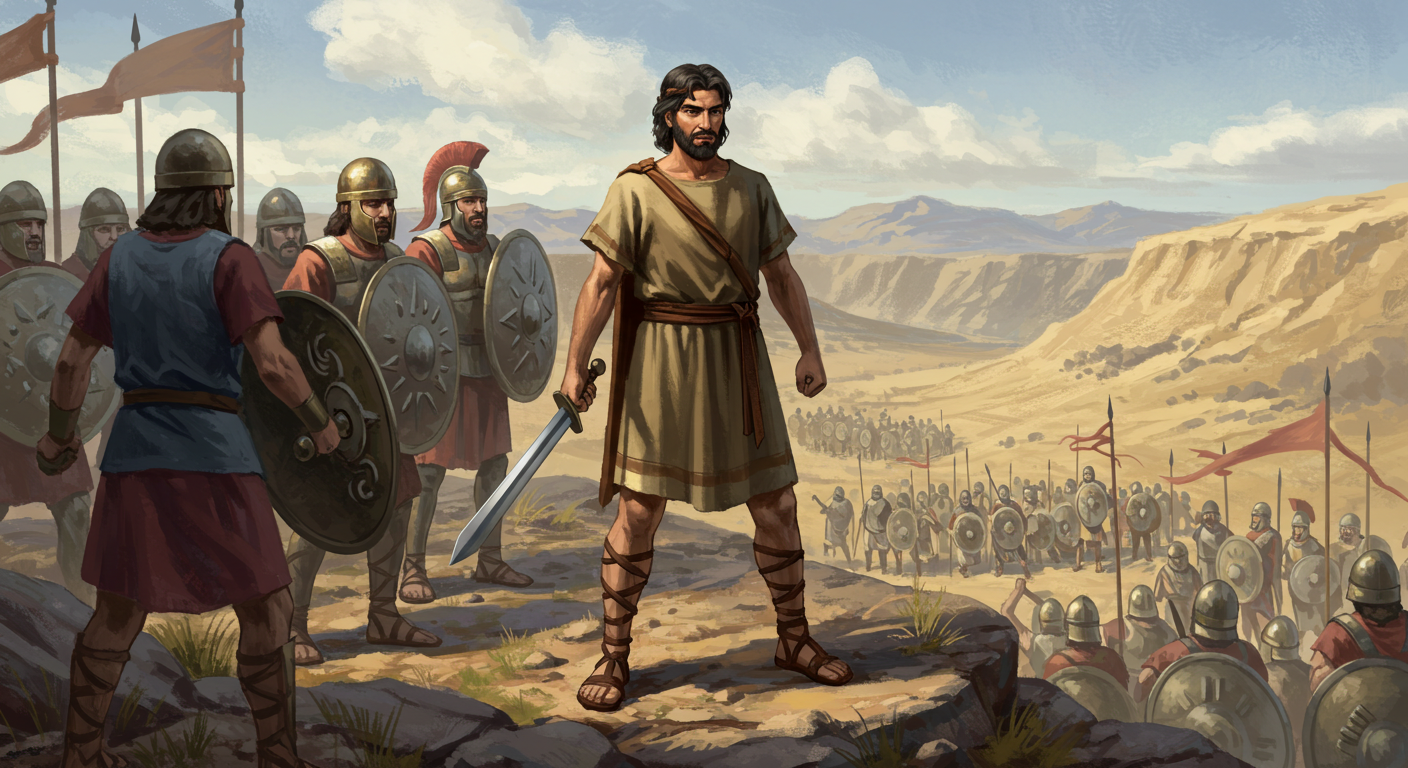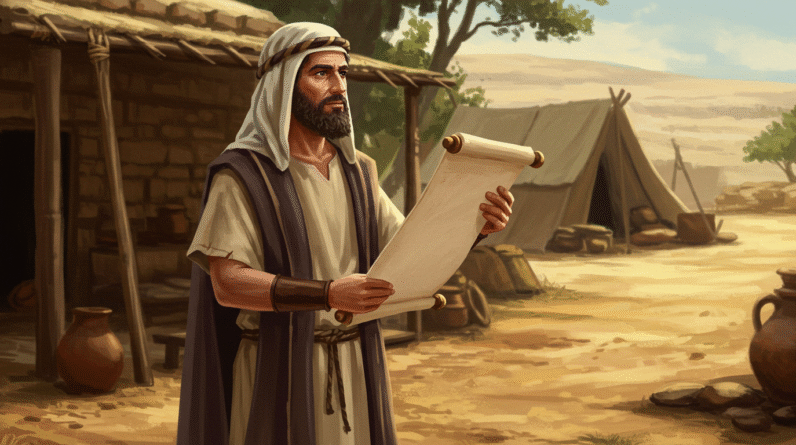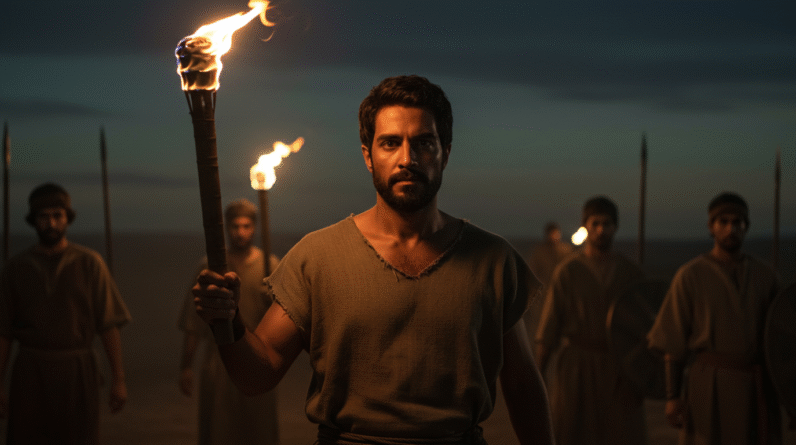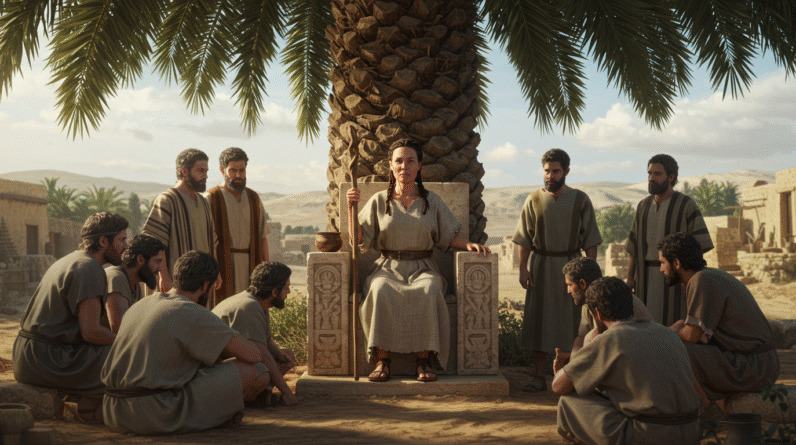Explore the heroic journey of Othniel, an Old Testament icon, whose faith and leadership ushered Israel into peace. Discover his lasting legacy in this compelling article.
Othniel: A Hero of Faith in the Old Testament

Introduction
In the grand tapestry of the Old Testament, there are characters whose stories, though brief, leave an indelible mark on the historical and spiritual landscape of Israel. Othniel is one such character, emerging as a beacon of faith and leadership during a tumultuous period. Amidst an era riddled with chaos and moral decline, Othniel stands as a testament to divine intervention and steadfast faith. His story serves as an invaluable chapter in the narrative of Israel’s judges, highlighting the cyclical challenges faced by the nation and the redemption offered through God-appointed leaders. Through his unique contribution, Othniel embodies the qualities of faith and courage, guiding his people toward a renewed covenant with God.
Early Life and Background
Othniel’s origins are as rooted in the soil of promise as his achievements. Born as the son of Kenaz, he was a part of the influential tribe of Judah. This tribe held significant prominence among the twelve tribes of Israel, tracing their lineage to one of Jacob’s sons, Judah. Such a heritage likely instilled in Othniel a strong sense of identity and purpose from an early age. The cultural context of Othniel’s youth was one of deep tribal affiliations, land inheritance, and a sharp division between the worship of Yahweh and the idolatry prevalent in neighboring nations. These elements contributed to shaping Othniel into the warrior and leader he eventually became.
His upbringing would have been intertwined with the narratives of patriarchal faith and God’s promises—stories that his elders would have passed down, fostering a resilient spirit. The Kenizzite clan, with its established roots since the time of Abraham, further provided Othniel with a framework of loyalty and courage. Such formative experiences, steeped in a rich oral tradition and communal values, prepared Othniel to rise when God called him to act.
The Calling and Rise to Leadership
The call to leadership in Othniel’s life came not from a human desire for power or prestige but from a divine summons in response to Israel’s cries for liberation. The people of Israel found themselves oppressed by Cushan-Rishathaim, king of Aram Naharaim, due to their disobedience and forsaking of God. It is within this context of suffering and supplication that God raised Othniel as Israel’s deliverer.
Scripture tells us, “But when they cried out to the Lord, he raised up for them a deliverer, Othniel son of Kenaz, Caleb’s younger brother, who saved them” (Judges 3:9-10). The Holy Spirit’s empowering presence came upon him, equipping him with the necessary strength and wisdom to lead his people into battle, securing a monumental victory that marked the genesis of his leadership tenure.
Initially, Othniel may have faced hesitations or uncertainties, common hurdles when stepping into a divine calling. Yet, galvanized by God’s Spirit, he overcame these challenges, marking a pivotal moment in Israel’s history where divine will intersected human action, ushering in a period of peace that lasted forty years after his triumph.
Key Events and Victories
Othniel’s story, although succinct in biblical records, captures a powerful epoch of divine intervention and leadership. The climax of his leadership comes through his military victory over Cushan-Rishathaim. With God’s guidance and strength, Othniel led Israel into a battle against their Mesopotamian oppressors—a formidable task requiring both strategic acumen and faith.
This victory was not just a political triumph but a spiritual reclamation for Israel. It underscored God’s steadfast love and commitment to His covenant people, reaffirming the nation’s identity as chosen and protected by the Almighty. This event showcased God’s ability to work through ordinary individuals to accomplish extraordinary feats when they yield to His will.
The peaceful period of four decades that followed was a direct result of Othniel’s faithful obedience and God’s sustaining power. His leadership nullified the oppressive reign of Cushan-Rishathaim, demonstrating that divine favor could shift the course of history. Othniel’s faith in God and his willingness to act as an instrument of divine justice transformed him from a mere tribal leader into a national hero and a powerful judge of Israel.
Their Leadership Style
Othniel’s leadership is characterized by an unwavering fidelity to God—a quality that defined the effectiveness of his rule. As an obedient servant of God, Othniel’s approach was rooted in humility and reliance on divine guidance rather than personal ambition or tribal wealth. This alignment with God’s will enabled him to inspire confidence and faith among the Israelites, urging them to return to their covenantal promises.
In terms of tactical leadership, Othniel was wise and strategically astute, with an innate ability to unify the disparate tribes of Israel. His ability to rally the people and lead them into victory was a testament to his credibility and divine anointing. Remarkably, Othniel’s influence extended beyond the battlefield, impacting Israel’s spiritual renewal. His decisions were underscored by a deep understanding of justice and faithfulness, qualities honoring to God, ensuring that his legacy was not only one of military conquest but spiritual renewal.
Challenges and Failures
Even heroes are not spared from facing intense challenges, and Othniel was no exception. Yet, the biblical narrative does not elaborate much on personal failures, largely highlighting his effectiveness in completing God’s appointed task. It’s plausible that like any leader, he faced the perennial struggle of maintaining moral and spiritual integrity amidst societal pressures and the threat of relapse into idolatry.
Handling such challenges required continued dependence on God’s counsel and a personal commitment to justice and righteousness. Othniel’s ascension as a judge underscores a broader truth in Israel’s history—humans, regardless of their position, are fallible and in need of God’s unending grace for sustained success. This is a lesson echoed throughout the biblical accounts of the judges, reminding us of the fragility of human effort without divine support.
The Legacy of Othniel
Othniel’s impact on Israel was profound, providing a model of leadership that encompassed both spiritual and military dimensions. His legacy was not solely in the deliverance he brought but also in the enduring faith he inspired among the people during and beyond his lifetime. By leading Israel back to God, Othniel paved the way for a generation to witness firsthand the blessings of obedience to divine teachings.
The forty-year peace following his judgeship is telling of the legacy he left—a period of stability and prosperity that allowed Israel to regroup and strengthen its covenant relationship with God. His story is a foundational element of Israel’s narrative, reminding future generations of the necessity of faith and the rewards of obedience. While Othniel’s impact may have been understated in scripture, the peace and revival he established serve as a touchstone for Israel’s ongoing struggle against disobedience and foreign oppression.
Life Lessons and Application
The story of Othniel imparts timeless lessons on faith, courage, and leadership that resonate with us today. His life exemplifies the belief that faith in God’s power is essential when confronting overwhelming challenges. Modern readers can draw inspiration from Othniel’s reliance on divine guidance amidst seemingly insurmountable odds.
His narrative encourages a reflection on our callings and the necessity of relying on divine wisdom over personal strength or worldly strategies. The lessons from his life challenge us to evaluate our responsibilities in leadership, be it in family, community, or beyond, inspired by his unyielding faith and steadfast leadership.
Moreover, scriptures such as Judges 3:9-10 urge us to cry out to God in times of distress and trust in His provision, reinforcing the covenantal promise of divine assistance and peace.

Conclusion
Othniel’s journey, albeit briefly captured in scripture, is replete with profound moments of courage, faith, and divine triumph. His legacy resounds as a testament to the power of obedience and the possibilities inherent in divine partnership. Reflecting on his contribution, we realize that like Othniel, we too are called to embrace our roles with faith, trusting in the transformative potential of aligning with God’s will. Let his story inspire us to act boldly, understanding that through faith, ordinary individuals can herald extraordinary change.
Acknowledgment: All Bible verses referenced in this article were accessed via Bible Gateway (or Bible Hub).







